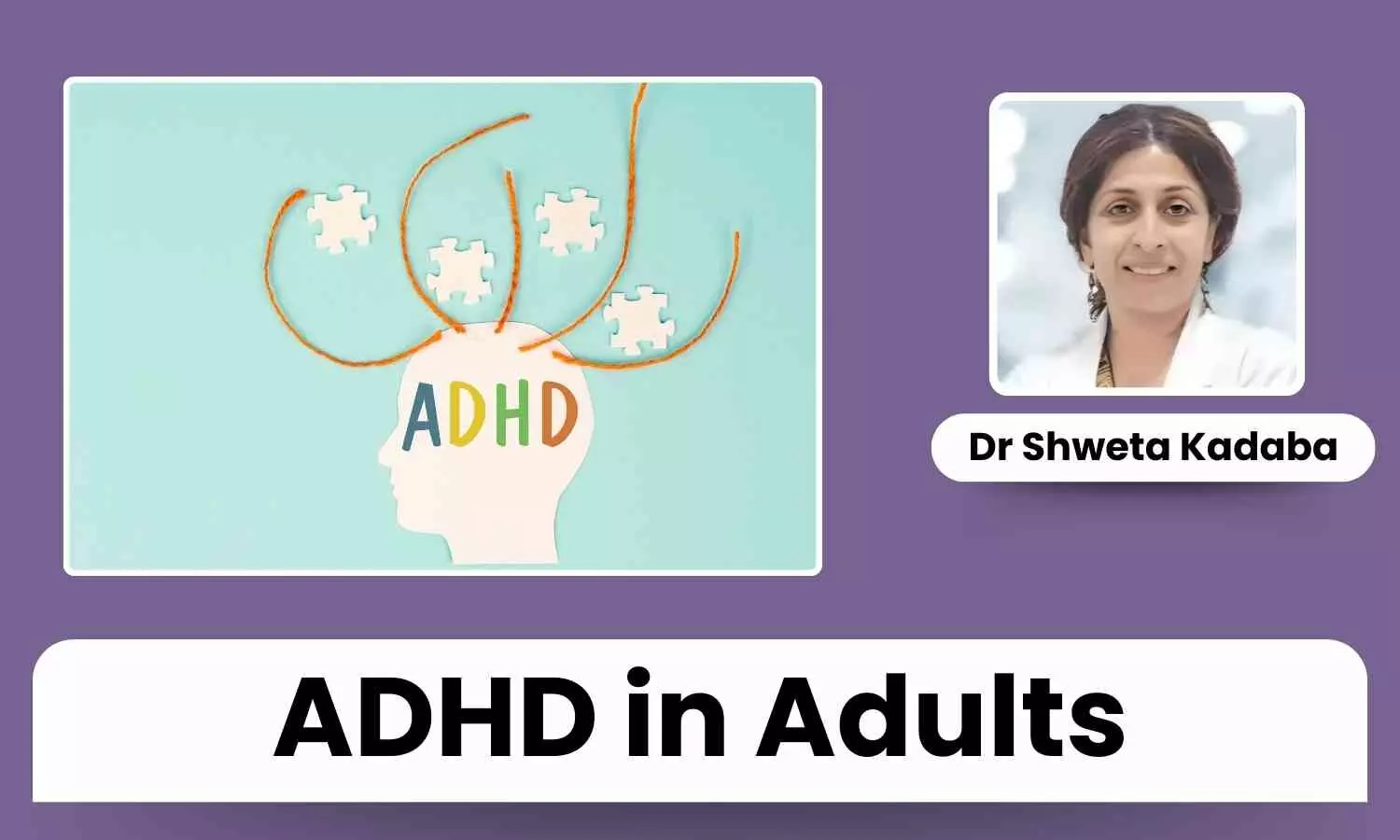ADHD in Adults: Overcoming Challenges in Focus and Productivity - Dr Shweta Kadaba

Attention-Deficit/Hyperactivity Disorder (ADHD) is a neurodevelopmental disorder that typically begins in childhood and can persist into adulthood. The DSM-5 identifies three subtypes of ADHD: predominantly Inattentive type, predominantly Hyperactive/Impulsive type, and Combined type.
There is no single test for diagnosing Adult ADHD; rather, the diagnosis relies on a combination of information, including childhood records, input from parents, personal accounts, clinical interviews, cognitive assessments, and observations.
ADHD can present with varying symptoms, leading to unique challenges in daily functioning. There is no single clinical profile for Adult ADHD.
A person with Adult ADHD may present with persistent trouble focusing, high distractibility, difficulty completing tasks, excessive restlessness, impulsivity and lack of self-control, poor time management and disorganization, frequently misplacing items, challenges with multitasking and emotional dysregulation.
The severity of these symptoms can vary from mild to severe, affecting both personal and professional life.
Individuals with ADHD frequently experience comorbid conditions, including sleep issues, anxiety, depression, and substance use disorders. Nearly 50% of those with ADHD may also struggle with anxiety.
The overlapping symptoms of anxiety and ADHD emphasize the importance of a thorough assessment by a professional to accurately confirm the diagnosis.
Interventions can be categorized into two main streams: pharmacological and non-pharmacological.
Pharmacological treatments for adult ADHD typically include stimulants, non-stimulants, and antidepressants. The primary goal of these medications is to enhance attention, improve academic performance, and support working memory.
Additionally, medications can help reduce psychomotor activity, aggression, and disruptive behaviours, although some residual symptoms may still persist at a lower intensity.
Non-pharmacological treatments include Cognitive Behavioural Therapy (CBT), cognitive training, physical exercise and mindfulness practices.
Recent reviews highlight the effectiveness of CBT for improving ADHD symptoms. CBT helps individuals shift negative thought patterns to more positive and healthier ways of thinking, aiding in coping with the challenges of ADHD.
In addition to this, there are many strategies that a person can incorporate into their day-to-day life that may help their functioning. They are –
- Prioritizing goals using goal management training: Goal management training is a cognitive strategy which involves three stages which are Stop-Think-Do. This would help to break down tasks into more achievable segments. Focusing on one task at a time, minimizing distractions would improve efficiency and the quality of work. Limiting multitasking would also help to complete one task at a time till completion.
- Organisation and planning in advance: Creating systems and designating specific areas for essential items, for example a bowl for keys and a charging station for phones. Using visual labels to organize the environment can make it easier to maintain order. Creating a routine and sticking to it would reduce the ambiguity about what is expected each day.
- Tracking systems: Using tools and apps to set deadlines and track progress may help to visualise what needs to be done. Using calendars to receive reminders and alerts will help to stay on task and reach deadlines on time.
- Mindfulness in daily living: Engaging in mindfulness practices like deep breathing, meditation can help ground the person in the present moment and enhance focus and clarity. Being fully present during daily tasks like eating meals or walking can improve focus and awareness.
- Cognitive remediation: Brain training programmes to improve cognitive skills, which may have exercises for attention and working memory improvement. The evidence for these exercises is limited, but when done in conjunction with implementation of strategies, they may serve to help overall cognition.
- Time pressure management: This is a strategy that involves improving awareness of the impact of time pressure and making a plan in advance to avoid the possibility of being overwhelmed by work at the last minute.
- Emotional regulation strategies: Managing emotions and preventing outbursts by becoming aware of triggers would be the first stage. Anticipation of situations which may trigger the person and replacing the undesirable response with an acceptable behaviour is useful.
It is recommended to work with a coach (usually a psychologist who is trained to work with ADHD) to help implement the above-mentioned strategies till they become a regular part of the person’s life.
Research indicates that multimodal intervention which means combining medication with behaviour change strategies, coaching, and psychotherapy offer the best long-term outcomes in managing Adult ADHD.


